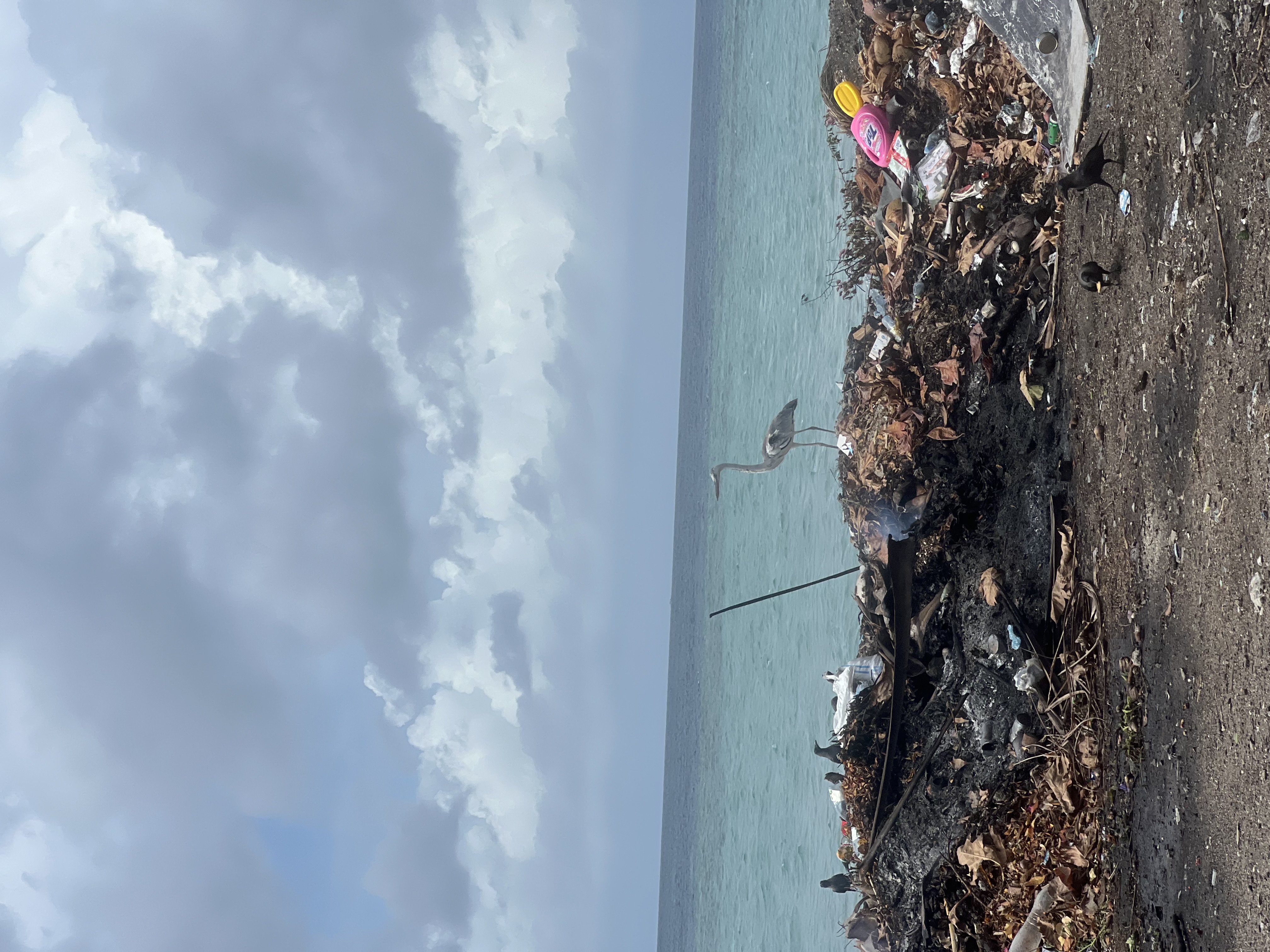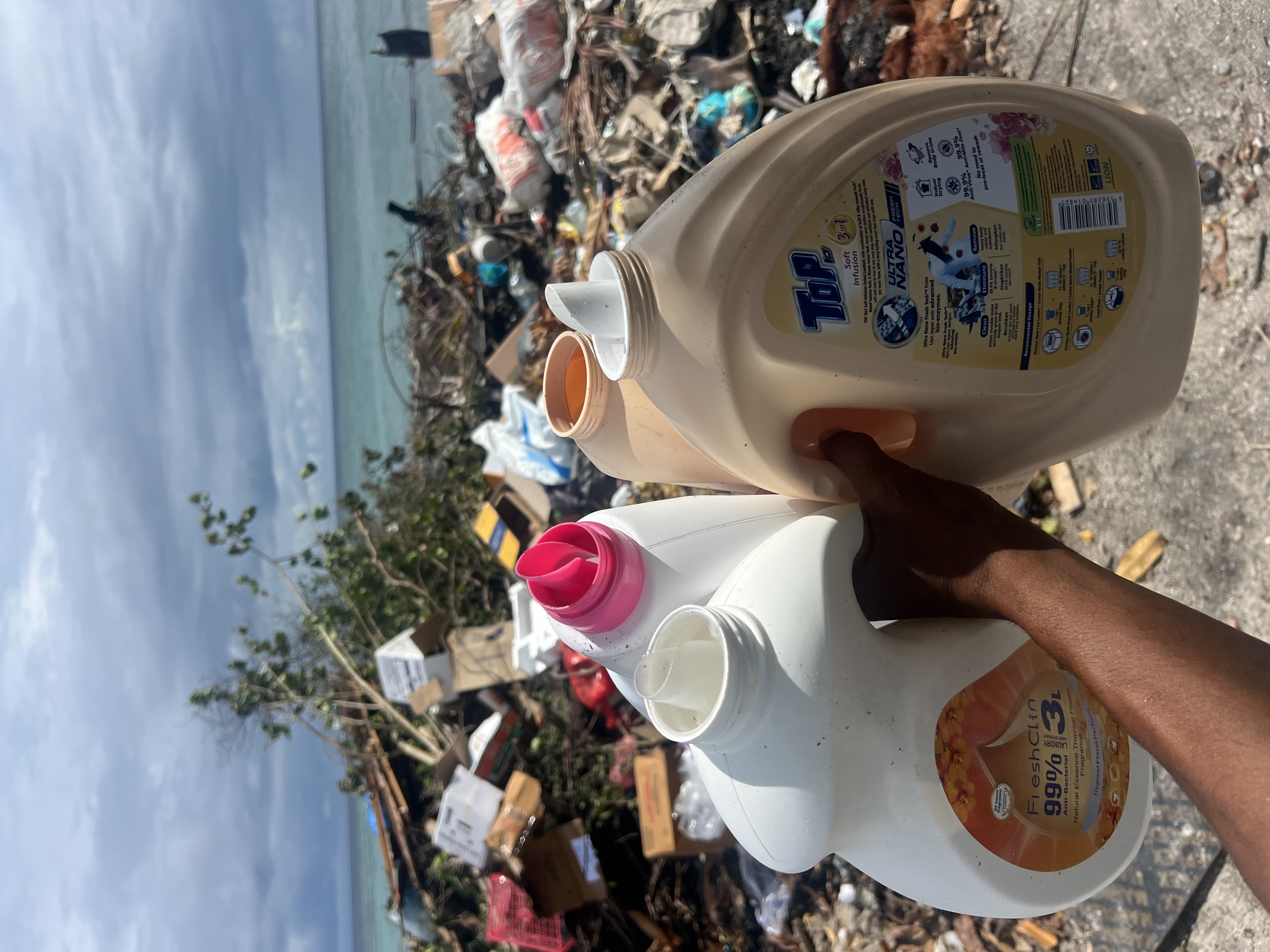The Plastic Problem
The Maldives faces an urgent and growing challenge from plastic pollution. Since its invention, plastic has created a single-use, disposable culture with devastating consequences for our oceans.
A Global Crisis Hits Paradise
Due to its lightweight nature, ocean currents can transport plastic thousands of miles, meaning nowhere is safe from its impact. For the Maldives, a nation of widely dispersed islands surrounded by the ocean, this challenge is magnified.
It is estimated that by 2050, there will be more plastic by weight in the oceans than fish.
— Ellen MacArthur Foundation, 2016


Where does the plastic come from?
Local & Imported Waste
Much of the waste originates from products imported for food, cosmetics, and tourism. Think about your daily life—how much plastic do you use? Do you recycle?
The Global Flow
A significant portion of plastic pollution washes onto Maldivian shores from overseas, carried by powerful ocean currents, highlighting the global nature of the problem.

Worldwide, only 9.5% of plastic has ever been successfully recycled.
The remainder is incinerated, placed in landfills, or escapes into the natural environment. (OECD, 2024)
Plastic in Maldives
In the Maldives, limited waste management infrastructure on local islands leaves few options for disposal. Plastic is often openly burned or dumped into the ocean, both with severe consequences.
Burning: The "Quick Fix"
Seen as an easy solution, burning plastic has devastating hidden costs.
- Releases toxic fumes linked to respiratory illnesses, reproductive issues, and cancers.
- Destroys finite resources that could otherwise be reused or repurposed.
- Releases greenhouse gases that accelerate climate change.
- Toxins settle into soil and water, threatening agriculture, fisheries, and human health.
Ocean Dumping
Though often done less publicly, the impact is catastrophic.
- Plastic can be ingested by marine life, causing injury or death.
- Breaks down into microplastics, which enter the food chain and bioaccumulate.
- Smothers and destroys critical ecosystems like coral reefs.
- Damages tourism and the nation's reputation with divers and snorkelers.
Current Efforts & A New Path
Policies and organisations are in place to improve the plastic problem. Single-use plastics are officially banned, yet are still commonly found. While other organisations are doing great work, most collected recycling is shipped overseas for processing at a low price.
Our Difference
The Rashu Plastic Project keeps this valuable material within the Maldives. We transform waste into art, retaining income, providing skills enhancement, and creating job opportunities right here in our community.